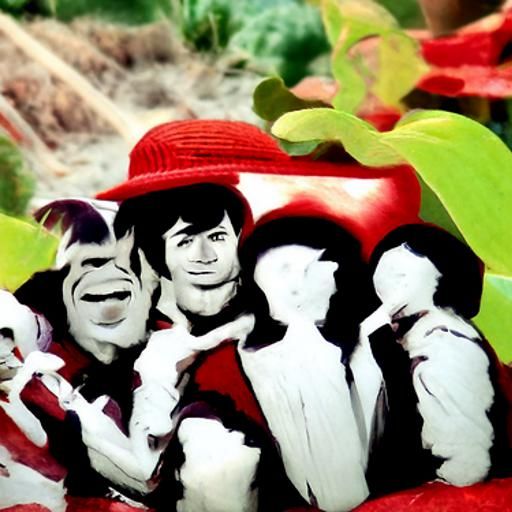Laura R Hepworth
Lady of the Rings (chainmaille rings that is)
On that point the answer is yeah it is a brand new image.
I've been testing it and running my own 2d and 3d work through and bypassing the perlin noise seed stage and it produces new works around those images. If you arrange some 3d primitives in blender into a shape (a castle / a hill / stream etc) and then render out a rough scene, the programme will add lighting / textures as if it were a painting all along. It doesn't always get it right, so I've been overpainting / comping different passes together.
Those are brush strokes in the style of someone else around shapes / colour / depth that I define up front, and definitely not a patchwork quilt of other people's images as if it were photobashed. It's pretty remarkable.
Definitely remarkable what they can do, that's why I specified the more advanced AI generators. Some really do just distort the original image or make a chopped up version and those would certainly not qualify as 'new,' but a clear derivative in copyright violation. As I said, I think the AI companies have a strong case to win the controversy, it's just that, as a professional freelancer, I have to wait until this plays out to fully jump on board or it could end my art career even as it's beginning.


